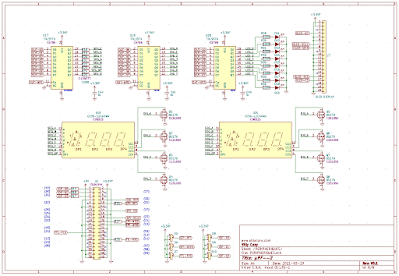With Covid, it's not very easy to move forward with the projects I'm working on right now. For example, I am mounting an MSX type computer board. This is Sergey Kiselev's Omega project available on Github at this address: https://github.com/skiselev/omega. The computer looks like this when mounted:
This computer is built from standard 'old' components but still relatively easily available. On the other hand, this implies the use of a multitude of sources of supply because it is totally impossible to find all the components from one supplier. Not that it's complicated, but it really takes a lot of time and organization. We also have to face long delivery times due to the Covid. The assembly of the board is not of great complexity but requires patience and a good practice of the soldering iron. It is definitely not a beginner's job.
My first board is almost finished:
In fact, I have ordered components for several boards. No need to generate all these global transports for a single copy. I may offer a few mounted boards for sale. I plan to use this first one as a prototype for some future developments, because the MSX standard is still active and dynamic.
The Z80 which equips this type of equipment is definitely an excellent processor for familiarizing yourself with the architecture of computers and their programming. This is obviously a totally different approach to the 'virtual' world that is programming under Windows for example. I think that creating an application for such a machine is much more rewarding than running your first (boring) 'Hello World' application in its 'little window' ;-)
Other projects will soon be completed. I'll post on this blog when it's done ....













